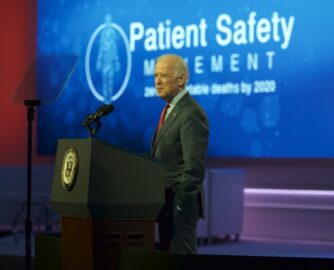The Patient Safety Movement Foundation takes a holistic approach to reducing preventable patient harm. Our movement brings patients, clinicians, healthcare organizations, payers, and policymakers together to address the complexity of healthcare challenges systematically. We have the know-how to achieve ZERO preventable patient harm, but this can only happen in a healthcare setting that has a culture of safety and implemented the necessary Actionable Evidence-Based Practices.
A landmark Institute of Medicine report, “To Err Is Human: Building a Safer Health System,” first brought much-needed attention to patient safety in 1999. It noted that as many as 98,000 people die in US hospitals due to preventable errors every year. Today in the United States alone, estimates range as high as 200,000 people dying each year from medical error, making it the third leading cause of death. Globally, the number is as high as 3 million, greater than the annual death toll from malaria, tuberculosis, and HIV combined.
This issue affects us all, regardless of our gender, age, race, geographic location, and socioeconomic status. People who lack the means and access to quality care are particularly vulnerable to preventable harm in healthcare settings. Yet, we also hear of celebrities with access to state-of-the-art care in top medical facilities being the victim of preventable harm and death.
Among the leading causes of preventable patient harm are medication errors, hospital-acquired infections, sepsis, pressure ulcers, communication errors, hospital-acquired pneumonia, and falls. While patient safety statistics often highlight mortality rates, millions of people worldwide survive a medical error only to have their lives critically altered, if not shortened, from a resulting disability. The damage caused by medical errors also extends to the patient’s family and loved ones, who are often left grieving and adjusting their lives around a tragic outcome.
Eliminating preventable patient harm requires awareness, advocacy, and action. To drive safe care—every time for every patient—we must as a healthcare community and society establish a culture of safety, commit to a culture of transparency, and incorporate evidence-based safety practices. Moreover, developing resilience through challenges, practicing innovative solutions, and advocating for the safety of healthcare workers address the complexity of healthcare systems. Our ultimate goal is to promote humanity and diversity in healthcare.
We cannot hope for ZERO, we must plan and execute.
Show More














